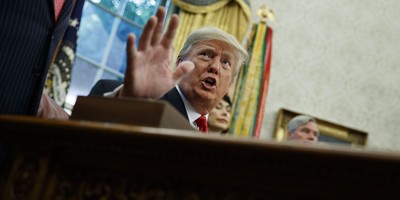The U.S.-Russian confrontation is escalating. President Trump has threatened 100 percent secondary tariffs on countries buying Russian oil and other exports, promising to impose them within 50 days unless Russia and Ukraine reach a ceasefire. The Senate, led by Sens. Lindsay Graham (R-SC) and Richard Blumenthal (D-CT), is proposing a 500 percent tariff package targeting nations that purchase Russian energy resources, including oil, gas, and uranium.
Russia, meanwhile, is opening a new front in the strategic South Caucasus. Ukrainian military intelligence (HUR) recently published a military order directing reinforcements to the Russian base in Armenia, a move HUR spokesperson Andrei Yusov described as part of Moscow’s strategy to “destabilize the global security situation.”
Since Russia’s 2022 invasion of Ukraine, its relationships with Armenia and Azerbaijan have deteriorated. Both nations, once close to Moscow, have shifted toward the West due to Kremlin missteps in handling the Nagorno-Karabakh conflict, with Azerbaijan also strengthening ties with Turkey. Moscow is now threatening Yerevan and Baku with potential coups or military actions while increasing pressure on Georgia, the third South Caucasus nation. The U.S., in coordination with NATO and Turkey, must engage decisively to protect American interests and avert a crisis like Ukraine.
Russia’s latest gambit puts pressure on both Armenia and Azerbaijan. Relations with Baku soured after Russian air defenses downed an Azeri airliner over Grozny in December 2024. Tensions escalated further in June 2025 when a police raid in Yekaterinburg led to the arrest of 50 ethnic Azeris, two of whom died in custody. This sparked tit-for-tat retaliations, including Russia halting Azerbaijani fruit and vegetable imports over alleged pest concerns and banning dairy products from two Azerbaijani producers.
Recommended
As Moscow’s influence over Yerevan and Baku wanes, President Vladimir Putin is resorting to aggression to restore Russia’s imperial footprint in the South Caucasus. The reinforcement of Russia’s Armenian military base signals to the region and the West that the Kremlin still views the Caucasus as its sphere of influence. This risks confrontation with Turkey, a rising regional power, and to a lesser extent, Europe. The U.S. has been largely disengaged, which has invited further Russian aggression. A coordinated strategy with allies is needed to counter the Kremlin’s ambitions.
Armenia and Azerbaijan gained their independence following the collapse of the Soviet Union in 1991. Armenia was traditionally pro-Russian due to the conflict with Azerbaijan over Nagorno-Karabakh and the 1915 Turkish Ottoman genocidal massacres. However, relations with Moscow soured since Prime Minister Nikol Pashinyan’s 2018 rise to power through a popular revolution that ousted a pro-Russian regime. Putin’s relations with Azerbaijan’s President Ilham Aliyev were initially cordial. Still, they began deteriorating when Russian troops obstructed Azerbaijan’s victory in Nagorno-Karabakh in 2020 and then nosedived when Putin refused compensation for the 2024 airliner incident.
Russia’s exclusion from negotiations over the Zangezur Corridor, intended to connect Azerbaijan to its Nakhchivan exclave through Armenia, has further frustrated the Kremlin, prompting it to escalate tensions in the region further.
The Kremlin’s aggressive posture toward post-Soviet states is a hallmark of its foreign policy, as demonstrated by its support for Abkhazian and Transnistrian separatists against Georgia in 1992-1993, the 2008 war with Georgia, and the 2014 invasion of Ukraine’s Crimea and Donbas. At the 2025 Saint Petersburg Economic Forum, Putin declared, “All of Ukraine is ours,” a claim Ukrainian President Volodymyr Zelenskyy said extended to Belarus, Moldova, the Baltics, the Caucasus, and Kazakhstan. Putin also threatened countries hosting Russian troops, like Armenia, stating, “wherever a Russian soldier steps, it is ours.” Azerbaijani state TV responded, accusing Putin of “…dominating peoples who were forcibly included in Russia.”
The West, hoping Russia could counter China or provide cheap energy, has often ignored Moscow’s imperial ambitions. Meanwhile, Georgia, once a beacon of democracy, has fallen under Russian influence. Bidzina Ivanishvili’s Georgian Dream Party halted EU accession talks and has veered toward authoritarianism. The West’s inaction has allowed Russia to regain control over this critical Silk Road hub.
While global attention focuses on Ukraine, Putin seeks to restore Russia’s imperial influence in the Caucasus by controlling Georgia and pressuring Armenia and Azerbaijan to keep them in Moscow’s orbit. Ignoring Russian aggression endangers the Caspian-Black Sea region and emboldens Russia, China, Iran, and North Korea. Russia’s “friendship without limits” with China, supported by arms and manpower from Iran and North Korea, enables China to capitalize on Moscow’s probing of Western vulnerabilities. China is also gaining traction through investments in the region.
Inaction in the Caucasus highlights the West’s failure to deter Russia and China effectively. This encourages these rival powers to escalate the number and level of confrontations, threatening strategic assets like the Baku-Tbilisi-Ceyhan pipeline and the Southern Gas Corridor, which deliver Caspian energy to global markets via Turkey. The U.S. must adopt a robust, coordinated strategy to counter Russian aggression and Chinese investment in this resource-rich, strategically vital region, or risk losing influence in a critical geopolitical arena.
























Join the conversation as a VIP Member